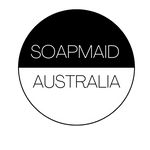


The beauty industry is evolving toward a more sustainable and eco-conscious approach, with consumers increasingly seeking products that align with ethical and environmental values. In the realm of soap making, the use of palm oil has been a subject of concern due to its association with deforestation and environmental impact. However, the adoption of RSPO (Roundtable on Sustainable Palm Oil) certified palm oil is revolutionizing the soap-making industry, offering a path toward sustainable and responsible production practices.
Understanding RSPO-Certified Palm Oil:
The RSPO is a global initiative formed to promote the production and use of sustainable palm oil. Its mission is to make the palm oil industry more sustainable by setting environmental and social standards that companies must adhere to. RSPO-certified palm oil is produced according to these stringent criteria, ensuring that it is sourced responsibly, without causing deforestation, harming biodiversity, or violating human rights.
Benefits of RSPO-Certified Palm Oil in Soap Making:
Environmental Conservation: RSPO-certified palm oil is sourced from plantations that comply with strict guidelines, promoting responsible land use and conservation practices. It aims to protect valuable ecosystems and endangered species.
Social Responsibility: The RSPO certification ensures fair labor practices, respect for local communities, and the protection of workers' rights within palm oil-producing regions.
Quality Assurance: RSPO-certified palm oil meets rigorous sustainability standards, ensuring high-quality raw material for soap making while contributing to a positive brand image for ethical and environmentally conscious businesses.
Incorporating RSPO-Certified Palm Oil into Soap Recipes:
Soap makers can contribute to sustainable practices by using RSPO-certified palm oil in their formulations. Here's an example of how to incorporate it into soap recipes:
Recipe for RSPO-Certified Palm Oil Soap:
Combine the RSPO-certified palm oil, coconut oil, olive oil, and shea butter in a heat-safe container. Heat the mixture until it reaches around 100-110°F (38-43°C). In a separate container, mix the lye with water, following proper safety precautions. Once both mixtures are at a similar temperature, carefully combine them. Blend until trace, then pour the soap batter into molds. Allow it to cure for 4-6 weeks before use.
Conclusion:
The integration of RSPO-certified palm oil in soap making presents a sustainable solution that balances environmental conservation with the production needs of the beauty industry. As consumers become more mindful of their purchasing decisions, supporting brands that prioritize sustainability can drive positive change within the industry.
By choosing RSPO-certified palm oil, soap makers contribute to a more sustainable supply chain, ensuring their creations are not only high-quality but also environmentally responsible. Together, we can foster a future where responsible sourcing practices are the norm, promoting a healthier planet for generations to come.

